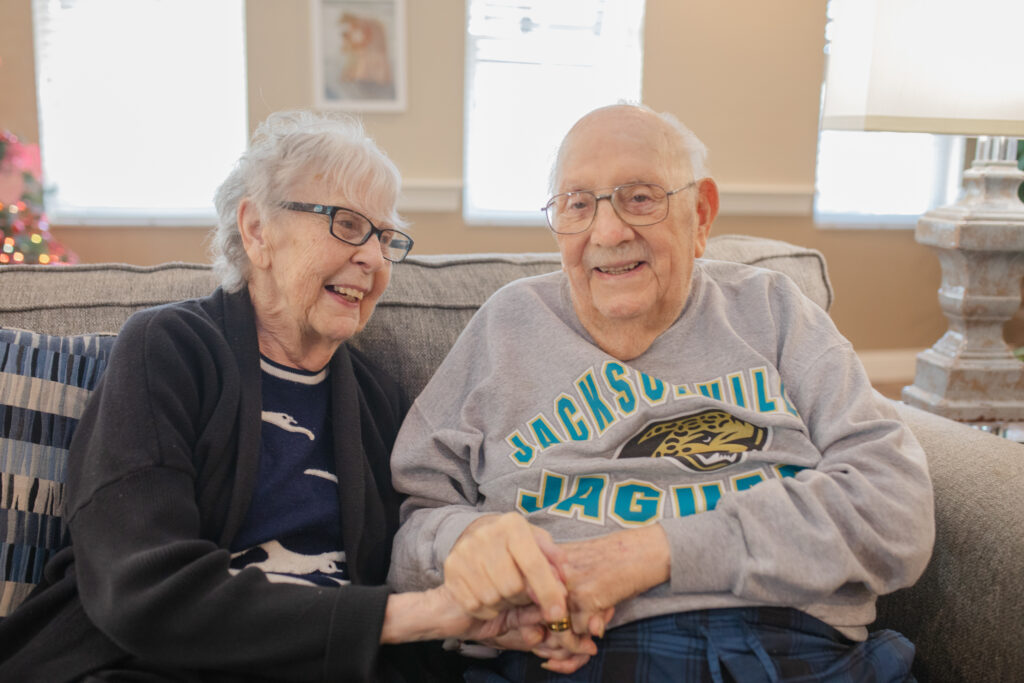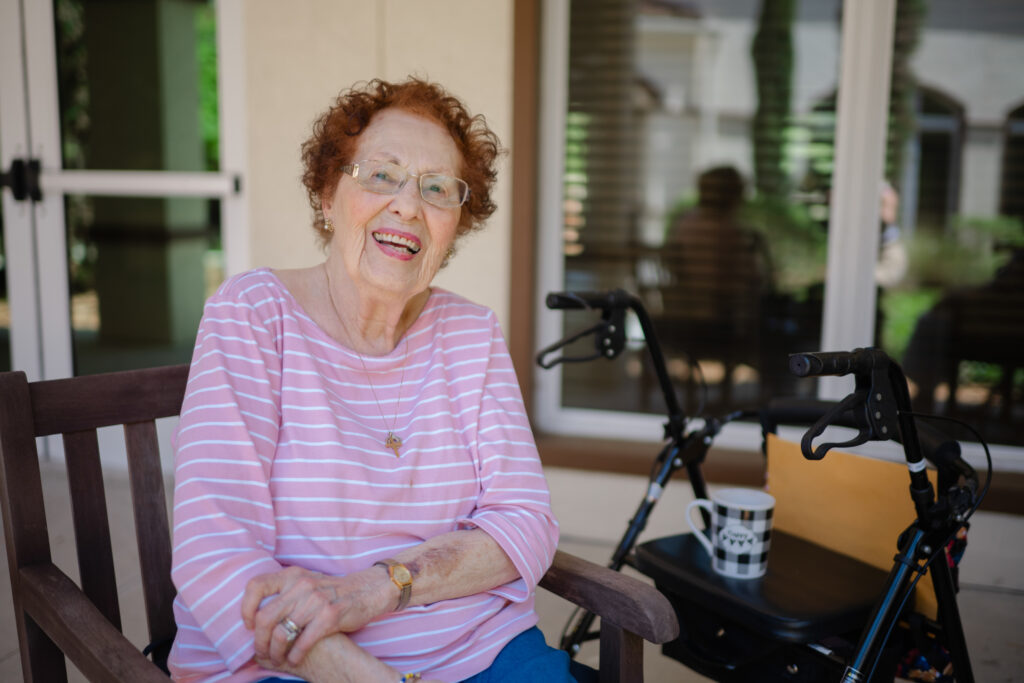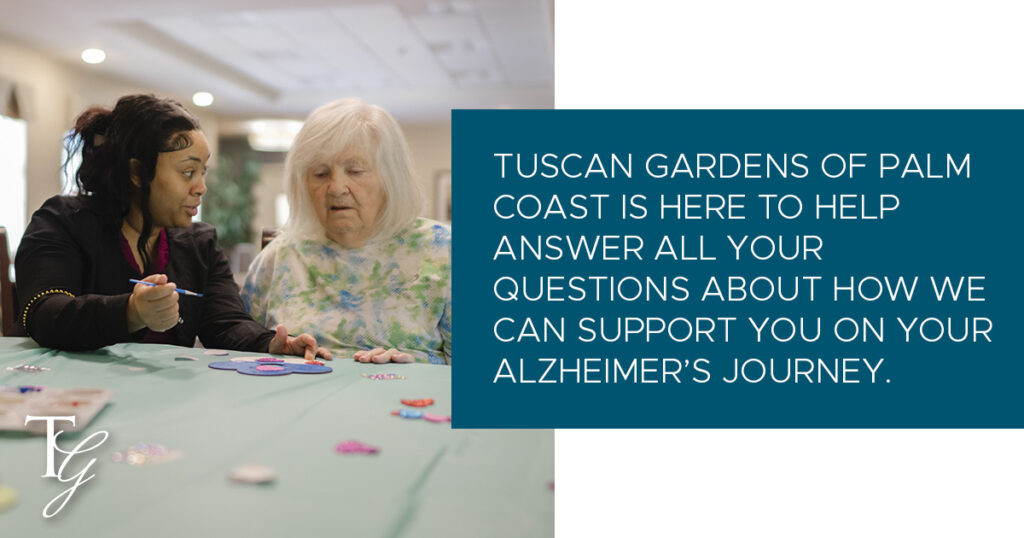An Alzheimer’s diagnosis can bring up worries, stress, anger, and denial, but it can also offer hope, self-understanding, and relief. You’re probably trying hard to get a full grasp of what you need to do now that you or your loved one have a diagnosis, and we want to help you understand what your path forward in life can look like. An Alzheimer’s diagnosis will change your life, but your life can continue to be enjoyable and rewarding for years to come!

There are no wrong feelings to have when you’re weighing the reality of an Alzheimer’s diagnosis. Anger, sorrow, relief at knowing what’s going on, numbness; all of these and more are normal. You may feel like you’re grieving after a diagnosis. This is also normal; there is a loss of the life path you may have expected that comes with a diagnosis like Alzheimer’s, and grief is a part of coping with loss.
It’s important to allow yourself to feel your feelings without judging yourself. Grief and emotions have to be fully experienced to be released.
The emotions and grief that can come with an Alzheimer’s diagnosis can sometimes be too heavy to carry alone. It can be challenging to ask for help, but this is not something you have to go through alone. Look for support from loved ones, ask your doctor about support groups for grief or ones specifically for people diagnosed with Alzheimer’s, connect with communities that work closely with people with Alzheimer’s, like Tuscan Gardens of Palm Coast, and see if a therapist that specializes in coping with Alzheimer’s could be a good fit.
You don’t have to do this alone. There are people who are happy to help, both people in your life now and new people you’ll meet along the way. Reaching out for that extra support can be the difference between being able to embrace living as fully as you can, and losing yourself to grief.
There will be some planning you’ll need to do to make sure that as Alzheimer’s progresses, your loved ones’ needs are taken care of and their remaining abilities are preserved. Some things you’ll want to consider include:
Once you’ve received an Alzheimer’s diagnosis, you’ll likely have plenty of questions. Ask them; your doctor’s job is to help you stay as healthy as possible. We’ve got a few suggestions if you’re struggling to come up with questions to ask:

Alzheimer’s has five medically recognized stages. Progress through these stages can happen at different rates for different people, and with proper medical treatment, social engagement, and support, that progress can be slowed down. It can take a decade on average for Alzheimer’s to progress, but some people live two decades with their diagnosis.
Alzheimer’s is a disease that has progressive impacts on your brain. Changes from Alzheimer’s can impact your memory, mood, personality, physical movement, thinking, judgment, language use, and problem-solving.
The five stages of Alzheimer’s are:
There’s a persistent myth that Alzheimer’s is not treatable. While Alzheimer’s is not yet curable, it is treatable. Multiple medications can help slow progression, and programs, like the Floreo neighborhood at Tuscan Gardens of Palm Coast, are specifically designed to help slow cognitive decline.
These programs keep you active and healthy, physically and mentally, connecting you with others who are also experiencing cognitive decline. Special approaches like color use, nutritional support, and tailoring the program’s activities to individual interests, can help you cope with the changes Alzheimer’s causes.
Alzheimer’s caregiving means having patience, approaching the day flexibly, and finding as much support as possible. Depending on one’s Alzheimer’s stage, they may only need minimal support to help them cope with memory lapses and daily tasks, all the way to needing help with all personal tasks.
When you’re an Alzheimer’s caregiver, it can be a unique and sometimes difficult experience to watch your loved one change. Losing parts of your loved one before the end of their life can be challenging, but the experience of caretaking doesn’t have to be negative. There are some basic steps you can take to help make caregiving a more straightforward experience for both you and your loved one, including:
When your loved one receives an Alzheimer’s diagnosis, it may come as a relief; you’ll have noticed some changes and have an answer as to why can help you understand your loved one.
This diagnosis is an opportunity to learn and help your loved one as they experience the changes of Alzheimer’s. Take the time to learn about how communication can help someone with Alzheimer’s; for example, did you know that it’s better not to correct someone with Alzheimer’s, as it can confuse them further?
This is also a chance to try to spend time with your loved ones in a way that they can handle. Creating life experiences that support and engage your loved one can help them cope with the changes of Alzheimer’s and also help them maintain the abilities they still have.
Your loved one may forget who you are, and they may have personality changes that make them seem very much not like themselves. You’ll have to try to cope with this, which can be hard. But if you’re willing to put in the effort to connect to your loved one, even when it feels hard to find the connection you once had, you’ll help them, and that is a great act of love to share with them.
There is a tremendous community of support standing ready with resources to help you. People living with Alzheimer’s benefit from learning all they can about living as complete a life as possible. You can also share what you find out with your loved ones so you can have built-in support at home.
One major resource is community fundraising and awareness initiatives. These initiatives reduce the stigma around Alzheimer’s and build community support so that those with a diagnosis feel less “othered.” We want to highlight the Walk to End Alzheimer’s, which will take place on November 9, 2024, in Volusia County. If you’re interested in participating, you can learn more here.
Places to learn more about Alzheimer’s and what the diagnosis can mean for you:
Support groups for those with Alzheimer’s:
Support for Caregivers:
At Tuscan Gardens of Palm Coast, we know that your new diagnosis likely feels life-changing. We also know that it is critical for everyone with Alzheimer’s to know they’re not alone. You’re likely in the process of planning as much as you can for your future, and we want you to know that we’re here to help.
We can share with you how our Floreo neighborhood helps those with early cognitive decline, making use of research-backed activities and methods to maintain and even improve cognitive ability. We can help you understand how our Valeo Memory Care neighborhood supports residents so they can live a full, rewarding life, retaining their independence as long as possible.
Reach out to us whenever you’re ready; we’re here to help answer all your questions about how Tuscan Gardens of Palm Coast can support you on your Alzheimer’s journey.

Established in 2011, Tuscan Gardens of Palm Coast owns and operates luxury senior living communities throughout Florida. Their signature programs at the Assisted Living, Floreo neighborhood, and Valeo Memory Care neighborhood offer a vibrant lifestyle complete with chef-prepared meals, engaging programs, and rewarding social events grounded by celebrating family, culture, and heritage. Located in sunny Palm Coast, Tuscan Gardens of Palm Coast is a place your loved one can call home, with all of the comforts you would expect from a luxury senior living community in Florida.